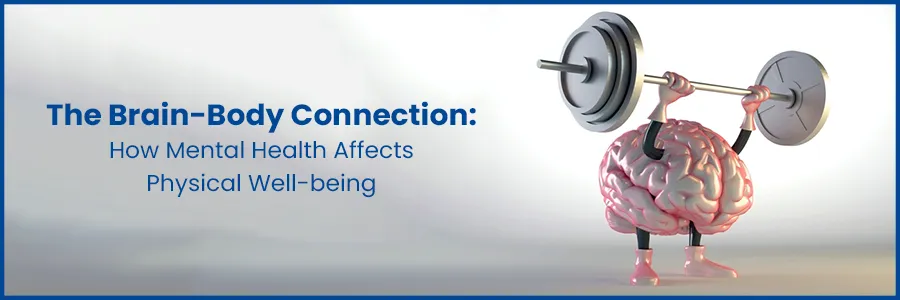- Cardiology 84
- Dermatology 45
- Endocrinology 33
- ENT 16
- Fertility 190
- Gastroenterology 78
- General-Medicine 81
- Gynecology 80
- Hematology 19
- Infectious-Diseases 33
- Neurology 52
- Oncology 34
- Ophthalmology 23
- Orthopedics 69
- Pediatrics 31
- Procedure 23
- Public-Health 144
- Pulmonology 59
- Radiology 8
- Urology 68
- Wellness 161
- Woman-and-child 77

Understanding the Relationship Between Mind and Body
The connection between our mental state and physical health has long intrigued scientists and philosophers alike. This article explores the profound impact emotions can have on our overall well-being.
The relationship between mind and body refers to the intricate interplay between our mental processes and physical health. It underscores how our thoughts, feelings, and attitudes can influence bodily functions and vice versa.
How Emotions Affect the Body
Emotions serve as powerful signals that can trigger physiological responses in the body. Positive emotions like joy and contentment can enhance immune function and promote cardiovascular health. Conversely, negative emotions such as stress, anxiety, or anger can lead to detrimental effects if not managed properly.
Secure your health with a second opinion. Make informed decisions and book your appointment today!
Get A Second OpinionHow Negative Emotions Affect Your Health
Negative emotions don't just make us feel bad - they can actually make us sick. Chronic stress and negative thought patterns have been linked to a wide range of health problems, including:
- Heart disease
- High blood pressure
- Diabetes
- Obesity
- Alzheimer's disease
- Cancer
- Asthma
- Arthritis
The good news is that we have the power to influence this mind-body connection in positive ways. By cultivating a healthy mindset, managing stress, and engaging in practices that nourish both the mind and body, we can improve our physical health and emotional well-being.
Strategies for Mind-Body Wellness
- Mindfulness Practices: Incorporating mindfulness meditation or deep breathing exercises can help regulate emotions and promote relaxation.
- Physical Activity: Engaging in regular exercise not only benefits physical health but also enhances mood and reduces stress.
- Healthy Lifestyle Choices: Maintaining a balanced diet, adequate sleep, and avoiding substance abuse can support overall mental and physical well-being.
Ready to take control of your health journey? Book your appointment now and start your path towards wellness today!
Book an AppointmentConclusion
Understanding the intricate relationship between mind and body is essential for holistic health. By nurturing positive emotions and adopting healthy coping mechanisms, individuals can optimize their well-being and lead fulfilling lives.
Frequently Asked Questions
Our minds and bodies are closely connected through a complex network of nerves, hormones, and chemical messengers. Our thoughts and emotions can influence our physical health, and vice versa.
Yes, stress can have a significant impact on physical health. Prolonged or chronic stress can lead to conditions like high blood pressure, heart problems, and weakened immune function.
Anxiety can trigger a "fight or flight" response in the body, leading to physical symptoms like increased heart rate, muscle tension, and digestive issues. These symptoms are the body's way of preparing to deal with a perceived threat.
Yes, positive emotions like happiness can release endorphins, which act as natural painkillers and mood boosters. They can also enhance our immune system and reduce the perception of pain.
To maintain good mental health, consider activities like regular exercise, a balanced diet, adequate sleep, relaxation techniques such as meditation, and maintaining social connections with loved ones.
Keeping a stress journal, practicing relaxation techniques, setting realistic goals, and seeking support from friends, family, or professionals are effective ways to monitor and manage stress.
Yes, it's entirely normal to have fluctuations in both mental and physical health. Everyone has ups and downs, but consistently taking care of your well-being can help minimize the down days.
The key takeaway is that our mental and emotional well-being can significantly impact our physical health. Taking steps to maintain a healthy mind, such as managing stress and promoting positive emotions, can contribute to an overall healthier life.

- Cardiology 2132
- Dermatology 168
- Endocrinology 135
- ENT 97
- Fertility 217
- Gastroenterology 232
- General 478
- General-Medicine 1685
- Gynecology 169
- Hematology 85
- Infectious-Diseases 208
- Neurology 207
- Oncology 345
- Ophthalmology 65
- Orthopedics 187
- Pediatrics 83
- Procedure 72
- Public-Health 209
- Pulmonology 126
- Radiology 13
- Second Opinion 311
- Urology 294
- Wellness 600
- Woman-and-child 447
Related Blogs
If you have any questions, please fill out the enquiry form or call us, and we will get back to you promptly.
040-68334455